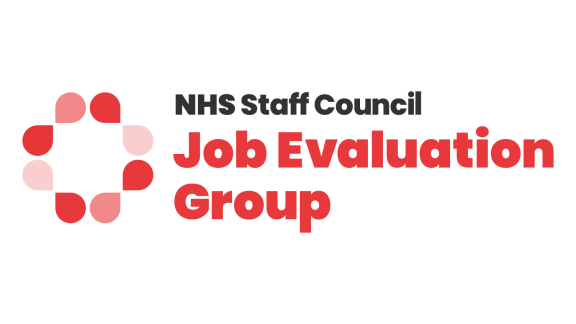Key points
Independent pay review bodies ensure that evidence-based decisions are made for NHS staff pay.
Employer evidence is vital in shaping pay policy that reflects workforce challenges and realities.
The pay award process is structured, collaborative, and aims for timely implementation each year.

Annual process
The NHS Pay Review Body (NHS PRB) and the Doctors’ and Dentists’ Review Body (DDRB) are independent bodies that play a central role in shaping annual pay decisions for NHS staff across the UK. The NHS PRB focuses on staff covered by the Agenda for Change (AfC) terms and conditions of service (all staff directly employed by NHS organisations, except very senior managers and staff within the remit of the DDRB). The DDRB advises on pay for doctors, including consultants, SAS doctors, and doctors and dentists in training.
Each year, the PRB and DDRB conduct a pay award round, gathering evidence from stakeholders including NHS Employers, government departments, system leaders, and staff representatives. Based on this evidence, alongside research on pay related matters and direct engagement with staff and managers through visits to trusts and health units, they make recommendations to government on pay adjustments. These recommendations are then considered by government for implementation. A decision will then be made and announced, which will be in the form of the NHS pay award.
NHS Employers’ evidence
Our evidence submission reflects the views and experiences of NHS employing organisations across England. We provide insight into workforce challenges (including morale and motivation), recruitment and retention trends, financial pressures, and the impact of previous pay decisions. By contributing robust data and analysis, we support a balanced and informed approach to shaping pay policy that reflects the realities of delivering care across the health service.
Our programme teams play a key role in shaping the evidence, contributing specialised knowledge in areas such as pensions, workforce supply, staff experience, and policy implementation.
Read our previous evidence:
Pay award timelines
The pay award is traditionally implemented from 1 April, aligning with the start of the financial year. In recent years, delays have pushed back implementation dates, with payments being backdated to April. However, progress has been made in moving towards a timely implementation from 1 April.
PRB and DDRB annual process
1. Remit letter
The process begins with remit letters issued by government ministers to the NHS PRB and DDRB. These letters define the scope of the review, specify which staff groups are included, and outline the economic and policy context. They also set expectations for the type of evidence and analysis required, ensuring alignment with broader public sector pay policy and workforce priorities. Following receipt of the remit letters, the NHSPRB and DDRB send letters to stakeholders with a call for evidence. This usually includes topics they would like to be covered in evidence, as well as a deadline for submission.
2. Our evidence gathering
We take a structured and consultative approach to gathering evidence on behalf of employers. This includes:
- direct engagement with NHS human resource directors (HRDs) and senior leaders, including our workforce policy board
- roundtable discussions and regional feedback
- analysis of national datasets such as the NHS Staff Survey and workforce analytics
- qualitative insights from case studies and interviews with operational leaders.
This evidence is drafted into a formal submission that reflects both national trends and local realities.
3. Submission of evidence
All stakeholders submit evidence by a set deadline. Before submission, we follow a rigorous internal process to review, refine, and sign off our evidence to ensure it is accurate, comprehensive, and aligns with and reflects the needs of NHS organisations. Once all stakeholders have submitted their evidence, we publish ours on our website.
4. Consultation and analysis
The NHS PRB and DDRB review all submitted evidence and consult with stakeholders to deepen their understanding. This includes:
- oral evidence sessions with key contributors
- site visits to NHS trusts and educational institutions.
5. Formulation of recommendations
Based on the evidence, the NHS PRB and DDRB formulate written recommendations on pay and conditions. These aim to balance workforce needs with the financial constraints of the NHS.
6. Report submission
The review bodies submit their reports to government, detailing their recommendations and rationale. These reports typically include both pay and non-pay recommendations.
Pay Review Body websites:
7. Pay award announcement
The government reviews the recommendations and decides whether to accept, modify, or reject them. Once the final decision is published, we produce communications and guidance to help organisations explain the outcome clearly and consistently to their staff.
Implementation
Following the announcement, we work with the Department of Health and Social Care (DHSC) and the Electronic Staff Record (ESR) team to implement the pay award. This includes:
- updating pay scales, contracts, and relevant policies
- conducting quality assurance checks and confirming accuracy with key stakeholders
- providing finalised figures to ESR for system integration and testing
- coordinating release dates and producing employer communications.
Once ESR confirms that the system is ready and advises when the updated pay will be reflected in salaries, we will publish the updated pay advisory notices and pay circulars and notify employers of their publication on our website via the workforce bulletin and network emails.
The ESR system update will automatically apply most pay increases. However, in some instances, such as staff on non-standard pay rates and local codes, employers will need to make manual adjustments on the system.
Pay circulars and pay award notices
The pay and conditions circulars and AfC pay advisory notices summarise the annual NHS pay awards for medical, dental, and wider NHS staff. They outline government decisions based on independent pay review body recommendations and show how pay has changed over time.
The links below will take you to the documents detailing previous years' pay awards:


